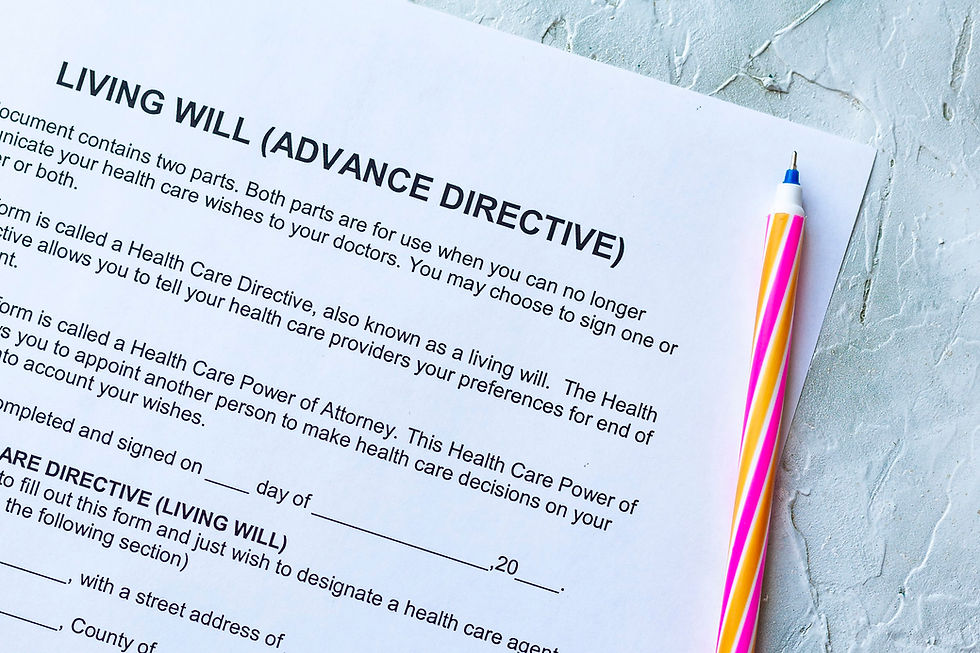The Top Three Things to Know If You Don't Have an Advanced Directive
- Kimberly Soto

- Mar 22, 2024
- 2 min read

An advanced directive is a legal document that outlines your preferences for medical treatment and care in the event that you become unable to communicate or make decisions for yourself. While it’s an essential component of health care planning, many individuals find themselves without one. Not having an advanced directive can have significant implications for both you and your loved ones. In this blog, we’ll explore the top three things you need to know if you do not have an advanced directive, highlighting the importance of taking steps to ensure your wishes are known and respected.
1. Decision-Making May Fall to Family Members or the Court
Without an advanced directive, the responsibility to make critical medical decisions on your behalf may fall to family members or, in some cases, to the court system. This can lead to confusion, disagreements, and added stress during already difficult times. Family members may be unsure of your preferences, leading to decisions that may not align with your wishes. Establishing an advanced directive provides clear guidance, reducing the burden on loved ones and ensuring decisions are made according to your preferences.
2. Potential for Unwanted Medical Interventions
In the absence of an advanced directive, medical professionals are generally obligated to pursue all possible treatments to prolong life. This can result in the administration of treatments or interventions that you may not have wanted, such as mechanical ventilation or resuscitation efforts. An advanced directive allows you to specify which treatments you do or do not want, ensuring that your healthcare aligns with your values and wishes.
3. Legal and Financial Implications
The process of determining guardianship or making healthcare decisions without an advanced directive can lead to legal battles and significant financial costs. Family members may need to go through court proceedings to gain the legal authority to make decisions on your behalf, which can be time-consuming and expensive. By creating an advanced directive, you can avoid these complications, ensuring a smoother and more cost-effective process for managing your care.
Conclusion:
The absence of an advanced directive can lead to uncertainty, stress, and potential conflict among your loved ones, as well as medical treatments that may not align with your wishes. It underscores the importance of proactive healthcare planning. The Soto Law Office is committed to helping individuals understand the significance of advanced directives and assisting in the creation of these crucial documents. Our experienced team can guide you through the process, ensuring that your healthcare preferences are clearly documented and respected.
Taking the step to establish an advanced directive is a profound act of care for yourself and your loved ones. It provides peace of mind knowing that your wishes will be honored, no matter what the future holds. Contact the Soto Law Office today to learn more about how we can assist you in securing your healthcare wishes through an advanced directive.












Comments